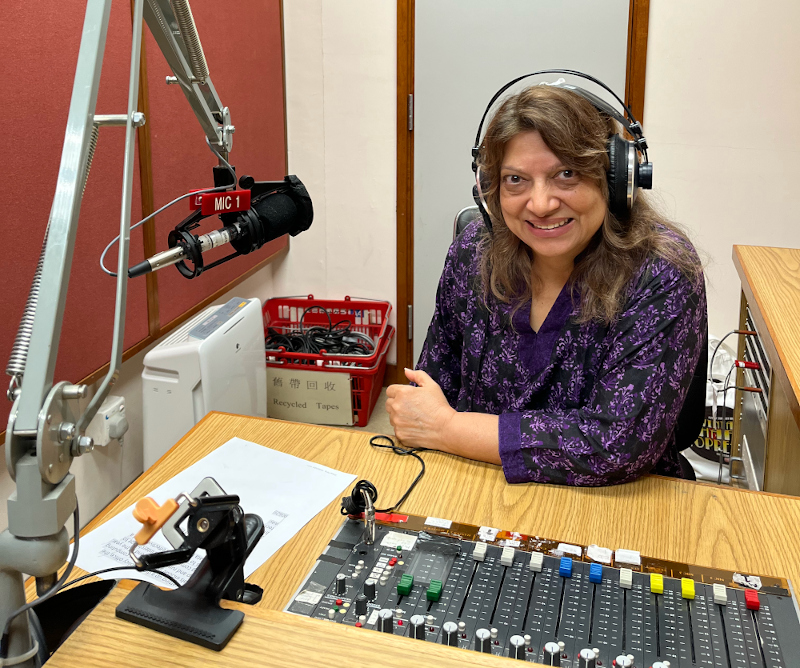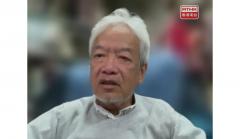簡介
Listen to #Hashtag Hong Kong every Sunday morning at 8.15
Focussing on issues affecting civil society, we'll hear from representatives of NGOs, associations, statutory bodies, and non-profit groups.
(Sundays 8.15am - 8.25am)
最新

Faride Shroff, the Founder and CEO of SENsational Foundation
Hello, My name is Faride Shroff, the Founder and CEO of SENsational Foundation. Disability inclusion is an increasingly important field that has gained prominence and attention in recent years. Despite this, people with disabilities often referred to as PwDs, remain a marginalised and often neglected group in society, as well as an untapped talent pool, with limited access to opportunities and resources, especially in Hong Kong.
There are a number of prominent problems that PWDs are facing in the workplace and in education. Whether this be a lack of knowledge on disability inclusion or the sheer disinterest in hiring people with disabilities, there is a large gap in disability awareness in Hong Kong.
To begin with, let’s talk about accessibility, there are so many buildings, offices, public facilities and educational institutions where accessibility measures have not been kept in mind. This can be solved by adhering to the principles of human centred universal design for urban development. Even new buildings that are meant to be fully accessible for all, have limitations such as cargo lifts for wheelchair users, smaller lift door sizes that hinder movement, lift buttons without sensory and tactile accommodations, and heavy access doors that only have a handle. Accessible restrooms ironically are still not accessible to all PwD’s.
Making physical spaces, transportation, information, and communication accessible to individuals with diverse disabilities are very important. Some real time examples could be installing ramps, elevators, and handrails and designing websites and digital content to be accessible to people with visual or hearing impairments. Advocating for their rights through public campaigns, workshops, and training programs that educate the general public, employers, and educators about disabilities ignites the conversation about disability inclusion and hopefully sparks action from society we live in.
Discrimination and social isolation are another factor that affect PwD’s on a daily basis. Whether that discrimination is from peers or from the general community, whether this is intentional or not, it manifests due to unconscious bias, judgment and fear. Due to this, PwD’s face stigmatisation leading to social isolation and limiting their social interactions. This isolation can impact their well-being and mental health, interfering with their integration into the workplace and educational environment.
Limited opportunities in education, services and employment are also affected in Hong Kong. It is an ongoing journey where we all have a part to play. Each student has a right to be given equitable opportunities to thrive in the learning environment, to receive a fair education regardless of disabilities. Along with lack of accommodations, many schools and companies do not provide assistive technologies such as braille displays or speech to text software. PwD’s often face multiple barriers when seeking employment, which stems from the stigma and negative preconceived opinions about their capabilities. Due to these perceptions, companies tend not to consider PwD’s when posting job vacancies.
It is a learning process for everyone. The first step is acknowledging the problems that PwD’s face on a daily basis and educating yourself on how you can make a difference whether that be in the workplace, educational environment or in your community. Collaborative efforts and activating allyship need to be done to address these challenges. The mindset of promoting accessibility, implementing inclusive policies and most importantly raising awareness about disability inclusion needs to happen every day. Even the smallest change can make a PwD’s daily experiences more positive. By breaking barriers of stigma that surrounds PwD’s, it is already a step in the right direction.
At SENsational Foundation, we believe that disability inclusion is not only a matter of social justice but a human right. Investing in disability inclusion, we will be able to create a more equitable and inclusive society where everyone can participate and reach their full potential. Remember, we all are SENsational! I would now like to dedicate this song for all PwD’s saying I am Alive by Celine Dion.
重溫

Dr Candice Powell, the CEO of Mind HK

















